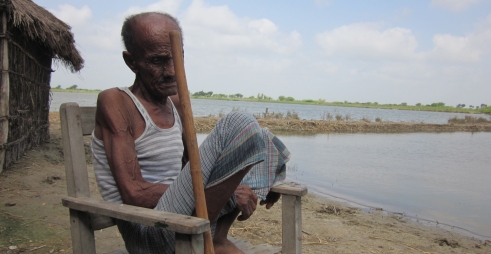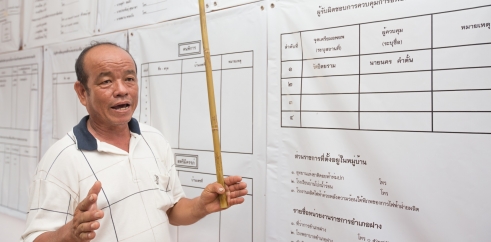From 30 November to 11 December, the world’s leaders are gathering in Paris for the 21st annual meeting working towards the objectives laid out in the United Nations Framework Convention on Climate Change treaty.
COP21 Paris: 2015 United Nations Climate Change Conference
From 30 November to 11 December, the world’s leaders are gathering in Paris for the 21st annual meeting working towards the objectives laid out in the United Nations Framework Convention on Climate Change treaty.

(c) Lucy Blown/HelpAge International
Dilshad, 89, had his home destroyed in a flood in Pakistan
From 30 November to 11 December, the world’s leaders are gathering in Paris for the 21st annual meeting working towards the objectives laid out in the United Nations Framework Convention on Climate Change treaty.
The United Nations Climate Change Conference (or COP21) is a crucial opportunity to create the first universal, legally-binding agreement to effectively tackle climate change and move the societies of the world towards resilient, low-carbon economies. This agreement would come into effect in 2020.
To achieve this, the method must be two-fold: working to reduce global warming to under 2°C through cutting back on greenhouse gas emissions, and ensuring that countries where climate change is already having an effect can adapt.
To help fund this crucial but ambitious target, COP21 is aiming to raise $100 billion a year from 2020 through public and private sources in developed countries.
A team from HelpAge will attending key events in Paris to call for world leaders to agree a realistic and binding framework, and to ensure that climate change strategies being developed take into account that climate change is happening within an ageing world.
What does climate change mean to older people?
Climate change is leading to a more volatile and unpredictable world, where natural disasters are occurring five times as often as they were in the 1970s.
During catastrophes such as floods, earthquakes and storms, older people are disproportionately affected due to their specific, age-based vulnerabilities.
Reduced mobility can make it harder to flee danger. They may be socially isolated, which could mean there is no one around to help. Conditions such as hypertension, heart disease or respiratory illnesses can be exacerbated during disasters, and in their wake access to life-saving medicine may be difficult. Older people may also have a reduced access to income, which can make recovery a much greater struggle.
A study into the deaths in New Orleans and St Bernard Parish in Louisana during and in the aftermath of Hurricane Katrina in 2005 found that 60 per cent of victims were over 65 years old when only 12% of the population of these two parishes were in this age group.
How can COP21 help ensure older people are more disaster resilient?
Key to reducing the impact of natural catastrophes on older people is disaster risk reduction (DRR). By working with older people to understand their vulnerabilities, policymakers can implement age-inclusive resilience planning to mitigate the impacts of events such as floods, storms and earthquakes.
HelpAge carries out DRR work in disaster-prone communities in more than 15 countries worldwide. We promote resilience through initiatives that target older people and that allow older people to take a lead on disaster risk assessment.
We make the most of their knowledge and years of experiences to feed into our programmes. Their awareness of warning signs, ways to adapt and techniques to recover can, when used alongside scientific insights and research, create very resilient communities.
In Bolivia, for example, we’ve worked with partners to harness pre-Columbian, ancestral farming techniques to build flood and drought-resistant camellones. These are raised island banks that retain water in times of shortage and protect the crops when lowland areas are hit by rising water.

(c) Robin Wyatt/HelpAge International
Man Chan, the head of the village Piang Kok in Thailand, inside his DRR nerve centre
To help older people in villages in Thailand, we’ve helped them to develop post-disaster reaction plans led by a ten-person committee. This includes checking in on the older members of the community to ensure they are okay.
What can you do?
We need to take this key opportunity at COP21 to ensure climate change strategies reflect the ageing world in which we live. This is vital not just for the older generations now, but everyone who is growing older in this increasingly volatile world. They will experience the greatest impacts of climate change over the coming century.
Older people must be included in the framework to ensure these affects are mitigated. You can make a difference by joining campaigners for the Global Climate March in cities across the world on 29 November, the eve of COP21. Demand that the summit agreement is ambitious and inclusive, that it takes into account the needs of the world’s vulnerable older people.
Find out more:
- Discover in which countries the disaster risk faced by older people is greatest in the Disaster Risk and Age Index.
- Read more about our DRR and climate change work.
